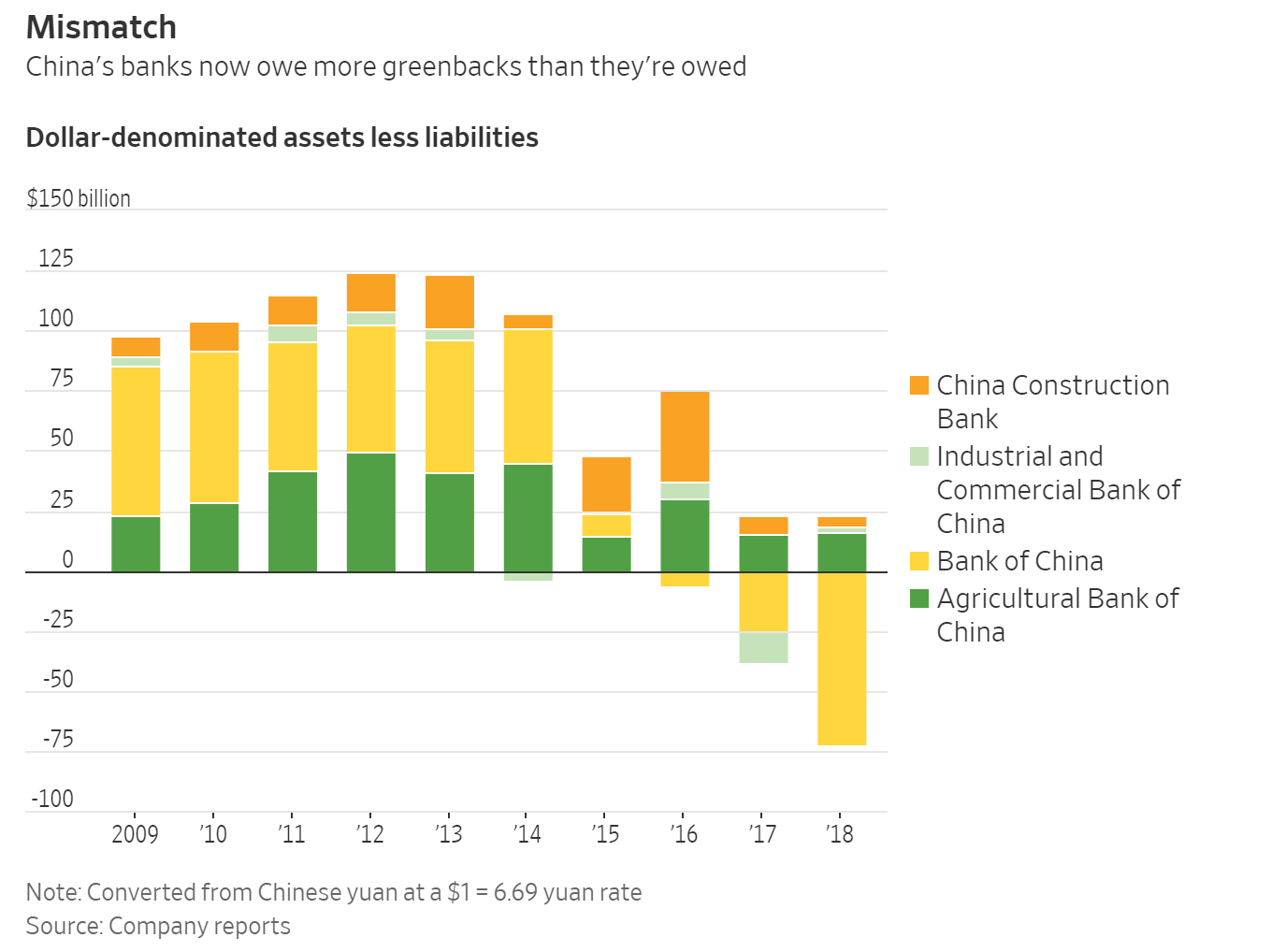Two months ago – I wrote about the record-breaking onshore defaults that have plagued corporate China in 2018.
And – further – I hypothesized that this trend will continue over the next year.
Now – only a few months into 2019 – and things are looking dire in corporate China.
Let me explain. . .
Thus far – 2019’s shaping up as another record year for Chinese corporate defaults.
To give you some perspective – in just the first four months of this year – Chinese firms have defaulted on roughly 40 billion in yuan ($5.8 billion USD) worth of domestic bonds.
And – according to Bloomberg – that’s 350% more than during the same period last year.

Making matters worse – many of these defaults are large Chinese firms. And some are even going right into bankruptcy.
For instance – four huge private firms in Shandong (China’s third wealthiest province) have filed bankruptcy over the last few months.
Other firms haven’t out-right declared bankruptcy – but are already behind many billions in missed bond-payments.
For example – Neoglory Holding Group (a property investment conglomerate) has missed payments of seven-billion-yuan so far in 2019. (And this comes after they missed repaying interest and principle to bondholders in September 2018).
Another example – Citic Guoan Group Company (which has interests ranging from financial investments to the property markets) defaulted on the three-billion-yuan worth of bonds last month. And has at least another 15-billion-yuan worth of onshore bonds outstanding that are maturing.
It’s clear that unless anything substantially changes – the trend’s set for another record-year of defaults throughout China.
But after the recent trade-deal breakdown – and increased tariffs – I think things will be much worse than the mainstream expects.
You see – China’s stuck between a rock-and-hard-place. . .
On the one side – Chinese firms are suffering from softer sales and slowing growth. This is crippling their ability to repay maturing bonds.
And on the other side – Chinese firms are feeling the effects of the Federal Reserve’s tightening (and a stronger U.S. dollar).
They’re having difficulty refinancing and repaying dollar-debts (of which there’s $2.25 trillion that Chinese firms owe over the next 30 months).
Thus – the Chinese government has repeatedly pressed banks to extend credit to private domestic corporations (specifically small-and-medium-sized firms).
But the problem here is – most debt is denominated in U.S. dollars
Meaning – Chinese firms need U.S. dollars to repay their loans.
But – like I wrote about a couple of weeks ago – Chinese banks are suffering their own dollar-shortage.
Take a look at the combined dollar-liabilities of China’s four largest commercial banks. . .

First – it was Chinese firms that were short on dollars-assets compared to dollar-liabilities.
Now – major Chinese banks are short on dollar-assets compared to dollar-liabilities.
What’s next? Will we see Chinese banks begin to default?
I wouldn’t be surprised. . .
For instance – two weeks ago – China Minsheng Investment Group (a private equity investment firm) defaulted on dollar-debts worth $800 million – with $300 million of that debt guaranteed by China Construction Bank.
And so far – investors remain confident that the bank will honor that $300 million dollar debt.
But – with Chinese banks already drained of dollar-assets – they can’t afford to be stuck paying all these corporate defaults.
And eventually – the market will begin to notice. . .
The current situation in China has a striking similarity to what Japan dealt with in the 1990’s – when overly-inflated asset bubbles (which were pumped up by years of cheap debt) began collapsing.
Unfortunately – like Japan learned – the further the asset side sinks, the more difficult the liabilities side becomes to deal with.
(Eventually – Japanese banks suffered credit rating downgrades and found it difficult to raise dollars from overseas to refinance massive loans which turned into non-performing assets).
So – in summary – I expect further stress in corporate China. Especially as the yuan weakens (making it difficult to repay dollar-debts).
This stress will affect the Chinese banking sector – which is reaching a ‘tipping-point’ – and make the system highly fragile.
Eventually – the grossly indebted Chinese economy will deflate – showing how horrible the malinvestment was over the years of cheap money.
According to Hyman Minsky’s Financial Instability Hypothesis (FIH) – the Chinese economy is in the ‘Ponzi Stage’.
This is the last stage in the bubble. When debtor cash-flows can’t cover interest payments or repay the principle due – and soon must liquidate assets – causing prices to collapse.
Maybe next time, more will understand that “the bigger the boom, the bigger the eventual bust.”
AS A DISCLOSURE: I am still short the $FXI (China large cap ETF) via long-dated, out of the money put options.
